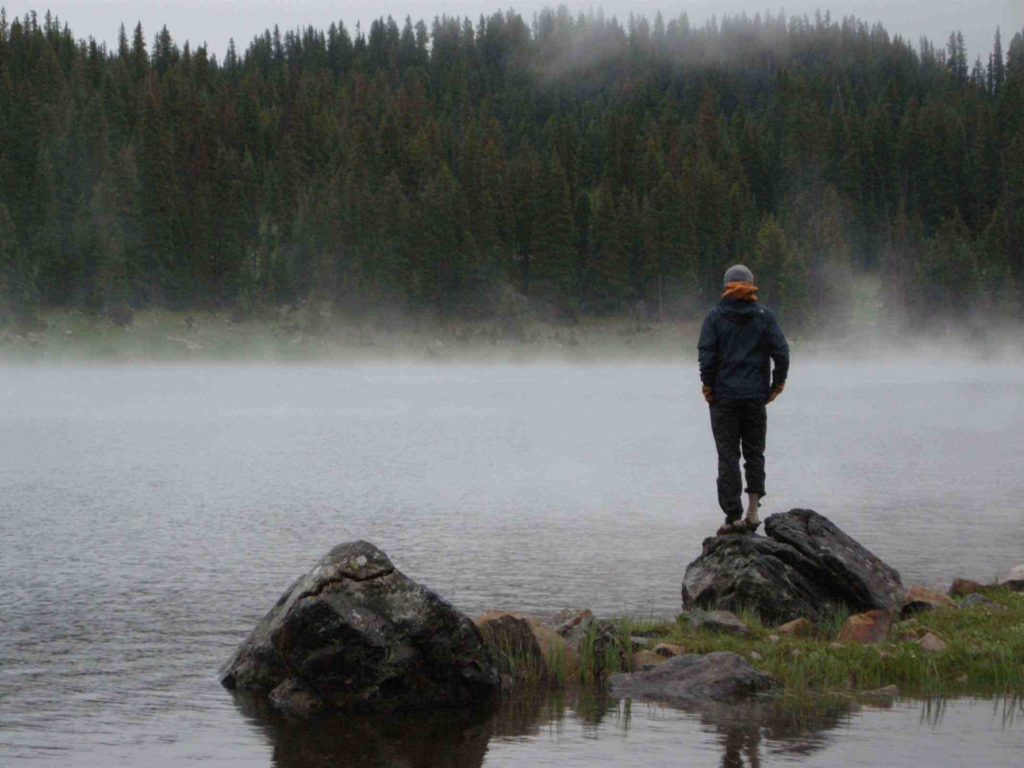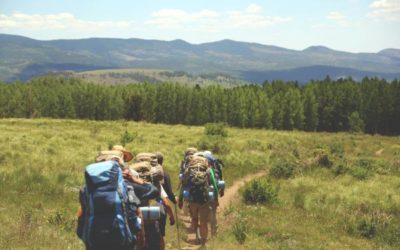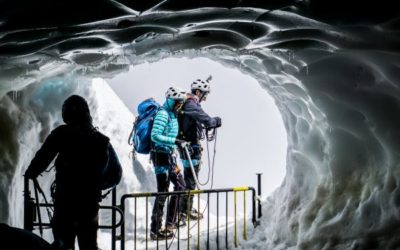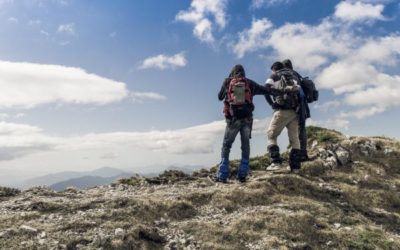Young people still run in a world of idealism. This is a good thing. They see issues around them and want to improve their world. Leaders of young people need to tread this ground carefully to encourage them how to pursue radically innovative solutions while recognizing that the real world is different from a classroom where theories abound.
FORMULA FOR PASSING ON THE BATON TO THE NEXT GENERATION = F + E + W
I have a simple formula for what it seems young people need today from their older mentors. We need to focus on a few to reach the masses just like Jesus did with his 12 disciples.
- F: FAN their idealistic vision with encouragement +
- E: EXPERTISE – offer expertise to help them create real solutions +
- W: WALK closely with them through the terrain of hard work so that they follow through and make their vision a reality. If we can do this the baton is successfully passed to our next generation.
A NON-NEGOTIABLE OF WILDERNESS EDUCATION: AMPLE TIME TO THINK
When I lead young people on adventure camps in the wilderness, or train outdoor leaders in the backcountry, one of my nonnegotiable is to give my participants ample time of solitude to have time to think. As a follower of Christ I see obvious spiritual value to this “quiet time” in that it opens our ears to the voice of God which rings loudly and clearly in the pristine beauty of his Creation.
But there is also other pragmatic value to this intentionally carved out time “to think.” Experienced youthworkers know that one of the greatest needs of young people is time to think and remove distractions. Creativity is lost in busyness, so these times of quiet sparks flames of creative thinking that is often latent in the hearts and minds of young people. And the increasingly oppressive world of video games and media is throwing layers of wet blankets on our best and brightest potential leaders because they don’t ever retreat from the noise to think.
RELATED: Mark 3:1-12 A Simple Question, A Stubborn Silence, the Heart Revealed.
Another non-negotiable for me is to give my group several questions each time I send them out for a quiet time. I usually have them look through a passage in the Bible which brings amazing insight into their identity and God’s purposes in the world. But I try to never miss an opportunity to ask a couple of “Application Questions” that get to the heart of 1) How they are going to apply what they’ve learned in the wilderness to life back at home, and 2) to find at least one corporate application, i.e. what are the implications of what we are learning for the whole group, or for their school, or city when they return. I don’t want them to believe the fairy tale of idealism that satisfaction comes in just applying what we learn for “ourselves.” More times than not, what we are learning is meant to be applied for the benefit of others in the communities where we live.
BLESSED TO BE A BLESSING
This concept of working to bless our communities, is a completely biblical idea. God told Abraham (see Genesis 12:1-3) that he was blessing him so that he and his whole people group (the Hebrews) would be a blessing to all the people of the world. A person is more satisfied as they understand their role in being a blessing to others.
RELATED: “How Wilderness Education Produces Social Innovators.“
Today we are hearing a lot about “social innovation” to describe this concept of “being a blessing to others.” I believe one of the most powerful ways you can turn young people on to a purpose greater than themselves is to have them think through how what they are learning not only applies to their life, but how it applies to their whole community. And I think wilderness adventure trips are an ideal place to pull this off.
For example, you might send your group out for a quiet time with these questions:
- If you apply what you have learned out here in the wilderness to life back at home, what are some potential spinoffs you can imagine happening in your school, with your friends, with your whole city?”
- In what ways would applying what you are learning cause transformation in society as a whole?
RELATED: Writing Stellar Application Questions that Spark Radical Change





